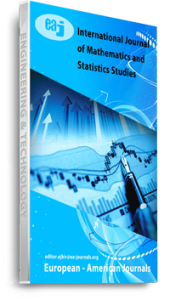Previous work by Lam (2017) and Lam (2016) show that social objects, cultural identities, and personality form another perspective of Roger Penrose’s three world philosophy. Using statistical data from the Centre for Economic and Policy Research (CEPR) in the United States, the relationship between these fields can be determined. This can be achieved through the Principal Component Analysis method by using statistical software: ‘R’. It is hoped that this data can be used to validate the sociological aspect of the three worlds philosophy.Certainly, there have been some opposing comments against the proposed theory. As such, this study will investigate some of the main oppositions and suggest possible solutions. Furthermore, by analysing the data, one can study ICT usage amongst students, in addition to predicting their future tendencies. One may explore how the ICT usage may have effects in one’s personality and cultural identity together with social objects. Social, cultural, and psychological factors all have effects on the academic achievements of students. These three areas influence the ICT usage of students and their scholarly results. Indeed, the culture and attitude of parents towards their child’s ICT usage can affect their educational performance (Lam, 2016). As a result, the following separate elements arise:
- Sociological three world philosophy
- Parental influence
- ICT leadership at school
- Studious outcomes
This will finally coalesce into a new and more rationalized connection, which can be presented in a framework. This helps to depict the creative relationship and understand how to minimize digital equality (or inappropriate digital usage) to maximize students’ academic performance. Realization can be achieved by manipulating both the three worlds philosophy and
parental influence factors. Moreover, a school’s successful ICT pedagogy is related to leadership, which is also connected to scholarly results. This means that digital usage can be optimized (or balanced) to produce studious outcomes. As a result, professionals such as teachers, social workers and researchers can develop corresponding strategies, such as providing philosophical education for parents, to better handle the ICT usage of children. Consequently, the digital divide in education, which has been created by modern technology, will be solved.
Citation: Carson Lam Kai Shun (2022) Optimization Strategies for Solving Students’ Digital Equality and Scholarly Outcomes, International Journal of Mathematics and Statistics Studies, Vol.10, No.5, pp.15-60
Keywords: Strategies., optimization, scholarly outcomes, solving students’ digital equality

